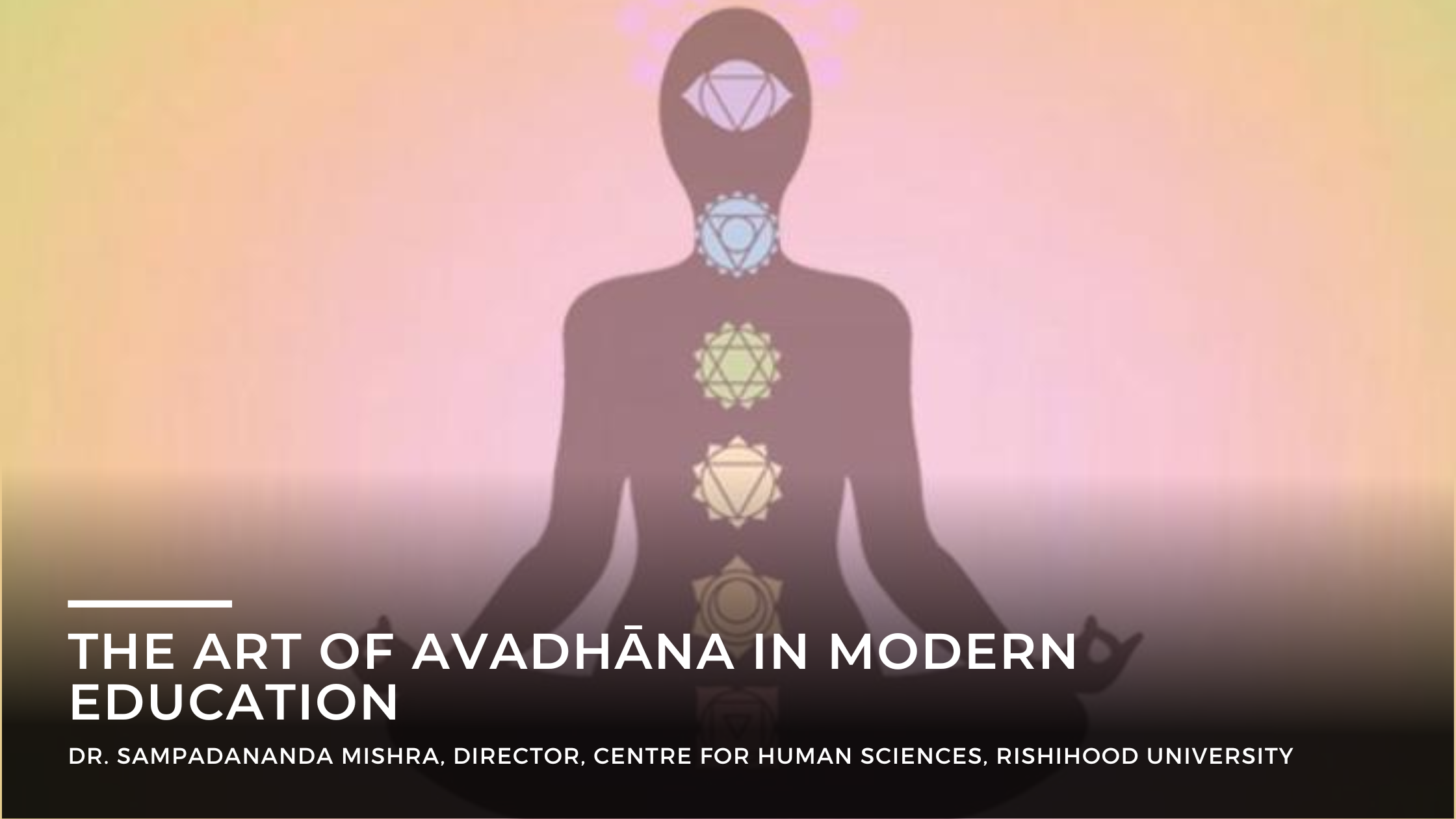What is Avadhāna ? Avadhāna is an ancient Indian art that has its origin in the Vedic age. Later the Vedic Avadhāna developed into various forms encompassing the domains of poetry, music, dance, Ayurveda, Mathematics, and so on. In its most popular form, it exists today as a literary and improvisational performance art that involves a highly skilled individual performing multiple literary challenges simultaneously.
Avadhāna is a Sanskrit word meaning “careful attention.” The practice of Avadhāna involves an individual paying complete attention and focusing on a single object while simultaneously performing several other cognitive tasks such as memorizing composing, reciting poetry, playing chess, counting the rings of a bell etc. The scholar artist called Avadhāni must carry out all these activities while being mindful of preset rules and conventions.
Avadhāna is said to be a rare and challenging accomplishment as it requires a high level of cognitive ability. The Avadhāni must process a vast amount of information and perform tasks in a rhythmic and continuous manner. He must also possess exceptional creative and intuitive skills, be knowledgeable in various subjects and have a command over multiple languages.
The practice of Avadhāna is not only limited to the performance arts but can also be used in modern education to enhance students’ cognitive abilities. The principles of Avadhāna can be used in the classroom to help students develop the skills of concentration, memory, creativity and attention.
Observation of various forms of Avadhāna confirms that it can help improve self-discipline, cognitive abilities, memory retention capacity and linguistic abilities. The practice of Avadhāna can also help decrease stress levels and promote calmness, patience and better problem-solving skills.
Incorporating the practice of Avadhāna in modern education can be beneficial for students especially during their formative years as it focuses on developing vital cognitive skills that will help them in their future endeavours. Teachers can introduce students to Avadhāna through various exercises and activities that involve memorization, attention and problem-solving.
There is no doubt that Avadhāna is an art form that has been practised in India for centuries. This ancient practice involves a combination of cognitive and creative abilities making it an excellent tool for modern education. The principles of Avadhāna can be used to enhance students’ cognitive abilities and promote self-discipline problem-solving skills and memory retention capacity. By incorporating Avadhāna teachers can provide students with an engaging and effective learning experience that will help them in their future endeavours.
At the Centre for Human Sciences, Rishihood University, we have undertaken a research project on Avadhānakalā and Consciousness Studies. Our approach here is to carry out an in depth study of the available literature related to Avadhāna, look at the various Avadhāna forms, and come out with various academic programs that will help the young ones not just to become familiar with this rare art form called Avadhāna but also help developing their cognitive skills. Please visit the following link to know more about the project: Avadhanakala and Consciousness Studies
– Dr. Sampadananda Mishra, Director, Centre for Human Sciences, Rishihood University

